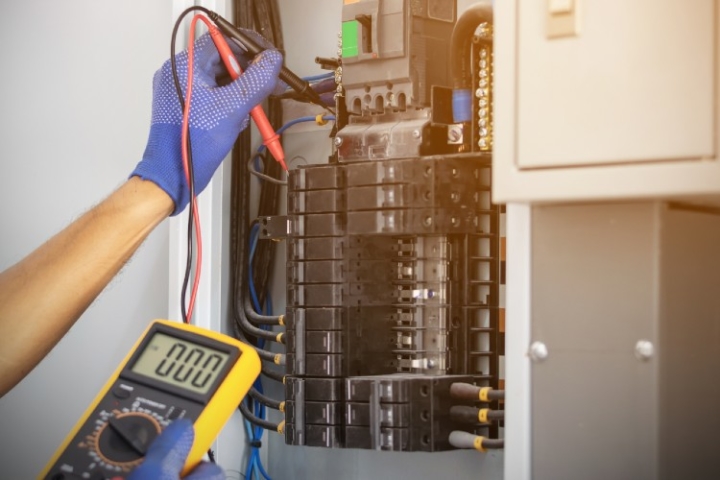Introduction: Understanding the Importance of Electrical Home Inspection
Electrical systems are the backbone of any home, providing power to appliances, lighting, and crucial systems. However, over time, wear and tear, faulty installations, or outdated wiring can lead to safety hazards and inefficiencies. That's why electrical home inspection is essential for every homeowner.

What is Electrical Home Inspection?
An electrical home inspection is a comprehensive assessment of a property's electrical system conducted by a qualified electrician. It involves examining various components, including wiring, outlets, switches, circuit breakers, and grounding systems, to ensure they meet safety standards and function correctly.
Why is Electrical Home Inspection Necessary?
Ensuring Safety
The primary purpose of an electrical home inspection is to identify potential safety hazards. Faulty wiring, overloaded circuits, and outdated electrical panels can pose fire risks if left unchecked. Regular inspections help mitigate these dangers, protecting lives and property.
Preventing Damage
Electrical issues can also damage appliances and electronic devices. By detecting problems early, homeowners can avoid costly repairs or replacements caused by electrical faults.
Compliance with Regulations
Many jurisdictions require electrical home inspections before selling or buying a property, renovating, or obtaining insurance. Compliance with these regulations ensures legal and insurance coverage, preventing future complications.
When Should You Get an Electrical Home Inspection?
Before Buying or Selling a Home
Before purchasing a new home, it's crucial to conduct an electrical home inspection to uncover any hidden issues and negotiate repairs or adjustments with the seller. Similarly, sellers can benefit from inspections to enhance the marketability of their property.
After Renovations or Upgrades
Renovations or additions to a home can strain the existing electrical system. An inspection after such projects ensures that the electrical infrastructure can support the changes safely and efficiently.
Periodic Maintenance
Even if there are no apparent issues, periodic electrical home inspections every few years are recommended to catch any developing problems and ensure the system's continued reliability.
What Happens During an Electrical Home Inspection?
Visual Assessment
The electrician starts by visually inspecting the electrical system, looking for signs of wear, damage, or code violations. This includes checking outlets, switches, light fixtures, and visible wiring.
Testing
Next, the electrician performs various tests to assess the functionality of the system. This may involve using tools to measure voltage, checking for ground faults, and testing the integrity of circuits.
Documentation
Throughout the inspection, the electrician documents their findings, noting any issues discovered and recommendations for repairs or improvements. This documentation serves as a reference for the homeowner and can be useful for insurance or resale purposes.
Common Issues Found During Electrical Home Inspections
Overloaded Circuits
Plugging too many devices into a single outlet or circuit can overload it, leading to overheating and potential fire hazards.
Outdated Wiring
Homes with outdated wiring, such as knob-and-tube or aluminum wiring, may be at risk of electrical faults and are not up to current safety standards.
Faulty Grounding
Improperly grounded outlets or systems can increase the risk of electrical shock and damage to sensitive electronics.
Insufficient Amperage
Homes with inadequate electrical capacity may experience frequent tripped breakers or voltage fluctuations, affecting the performance of appliances and electronics.
Conclusion
In conclusion, electrical home inspection is a crucial aspect of homeownership that should not be overlooked. By identifying and addressing potential issues early, homeowners can ensure the safety, efficiency, and compliance of their electrical systems. Whether buying, selling, or simply maintaining a property, scheduling regular inspections is an investment in peace of mind and property value.





